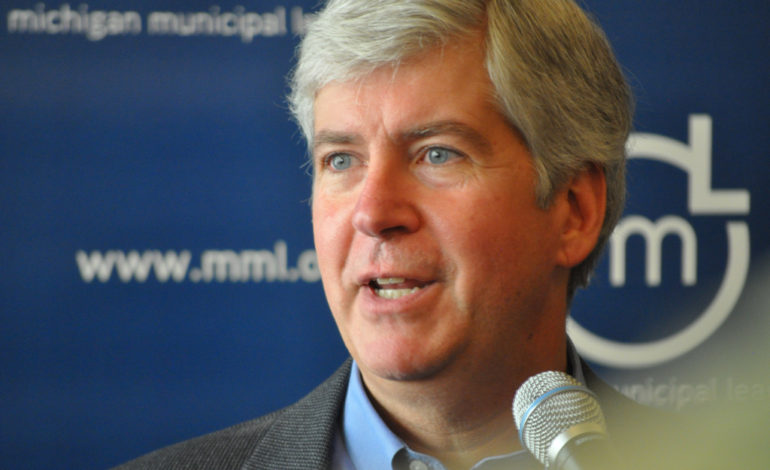LANSING — Governor Rick Snyder rejected 41 lame-duck bills on Friday according to a report from the Detroit Free Press, including a measure that would have given Republican-led lawmakers more authority to intervene in legal battles next year, in anticipation of Democrats taking over top posts within the state.
The proposal was believed to be a “power play” move to limit the authority of incoming governor Gretchen Whitmer and Attorney General-elect Dana Nessel, the report said. It had gained national attention over fears that Michigan Republicans were attempting to wrest control away from incoming Democratic leadership and elected officials.
Snyder also rejected a bipartisan package that would have legalized Internet gambling through casinos as well as a controversial GOP measure that would have permanently prevented doctors from using web cams on the Internet to prescribe abortion-inducing medications.
An additional measure was also rejected that would have clarified that “memorandums of understand” remain in effect following a governor’s departure from office. Snyder said the aim of the proposal was transparency, a “noble aim” according to the Detroit News report, but added that Republican legislation “has the potential to lead the way toward more routine legislative encroachment into regulating the activities of future governors.”
Aside from the vetoes, Snyder also signed a massive supplemental spending bill on Friday providing more than $1 billion for everything from cleaning up contamination to funding for parks. It was said to be one of the largest in state history according to a report from the Detroit Free Press. The income was provided through higher-than-anticipated tax revenues, increase online sales tax accumulation because of a recent U.S. Supreme Court decision, and nearly $100 million in “lapsed” funds that were doled out to multiple agencies last year.
Snyder is still sorting through more than 400 bills during the past few weeks of the 2017-2018 legislative session, the report said.
While Michigan has seen nearly a decade of economic growth and many indicators are positive within the state, including a rate that ranks eighth among all 50 states since the recession according to the Free Press, the growth of Michigan’s economy slowed in mid-2017.
Among the upcoming challenges for incoming governor Whitmer and Attorney General Nessel include a high-rising deficit at the federal level, a volatile and declining stock market in many areas, and the pending closures of several plants in Michigan and other U.S. states announced by General Motors, one of the state’s flagship and most iconic companies for decades.






Leave a Reply